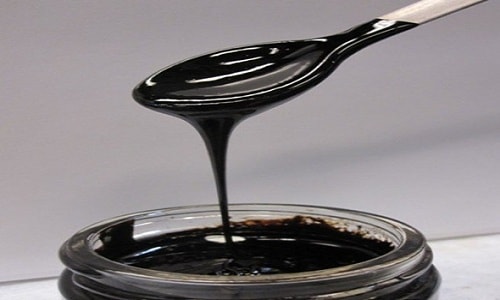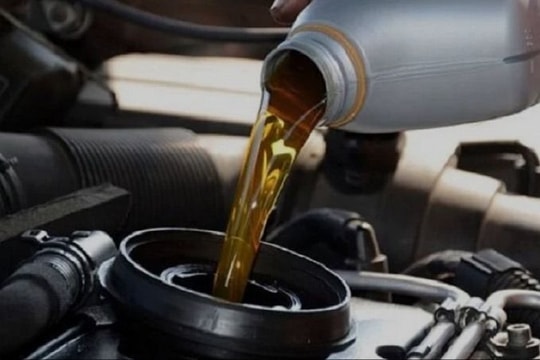Technology to convert wastewater into bio-crude oil
American scientists use hydrothermal liquefaction technology with high temperature and pressure to turn wastewater into bio-crude oil in just a few minutes.
 |
| Bio-crude oil is created from sludge in wastewater. Photo: Science Daily. |
Wastewater treatment plants of the future could directly turn regular wastewater into biocrude thanks to research from the US Department of Energy's Pacific Northwest National Laboratory (PNNL), according to Science Daily.
Scientists mimicked the geological conditions of Earth, using high temperatures and pressures to create bio-crude oil from wastewater in just minutes, instead of millions of years as in nature. The crude oil was then refined using conventional oil refining operations. The research results were published on the PNNL website recently.
Wastewater, or more specifically sewage sludge, is often considered a poor feedstock for biofuel production because it is too wet. The PNNL team used hydrothermal liquefaction (HTL) technology to eliminate the drying step that is required in most current wastewater-to-biocrude technologies, reducing production costs and using less energy.
HTL technology converts organic matter in wastewater into simple chemical compounds. Scientists pressurize the feed mixture to 204 atmospheres, 100 times the pressure in a car tire. The pressurized sludge then enters a reactor system operating at about 349°C. The high temperature and pressure break the sludge into various components, including biocrude oil and a liquid solution.
“Municipal sewage sludge contains a lot of carbon as well as fats. The fats facilitate the conversion of other materials in the wastewater such as toilet paper, allowing the sludge to move easily through the reactor and produce high-quality biocrude. When refined, the biocrude becomes gasoline, diesel, and jet fuel,” said Corinne Drennan, a bioenergy technology research specialist at PNNL.
HTL technology can also produce bio-crude from wet organic feedstocks, such as agricultural waste. “We have been researching and refining the hydrothermal conversion technology for over six years to create a continuous and scalable process that allows the use of wet wastes such as sewage sludge,” Drennan said.
PNNL has licensed the HTL technology to Utah-based Genifuel, which plans to partner with Metro Vancouver, Canada, to build the first HTL-based wastewater treatment plant in North America, with an estimated project cost of $6 million to $6.7 million.
According to VNE
| RELATED NEWS |
|---|

.jpg)



